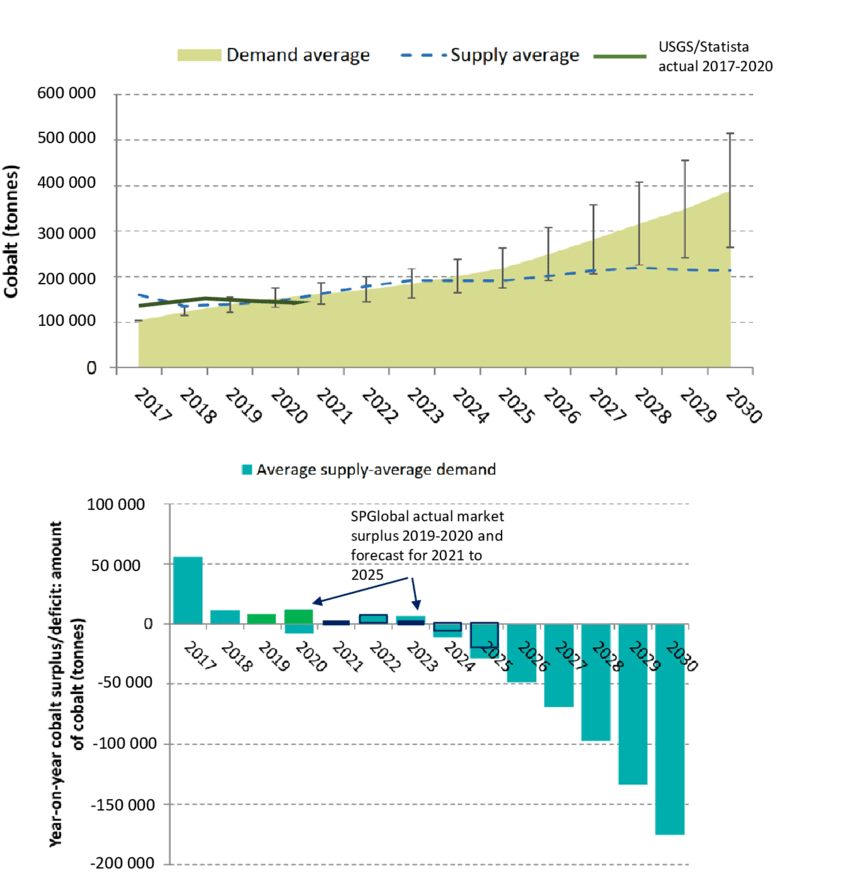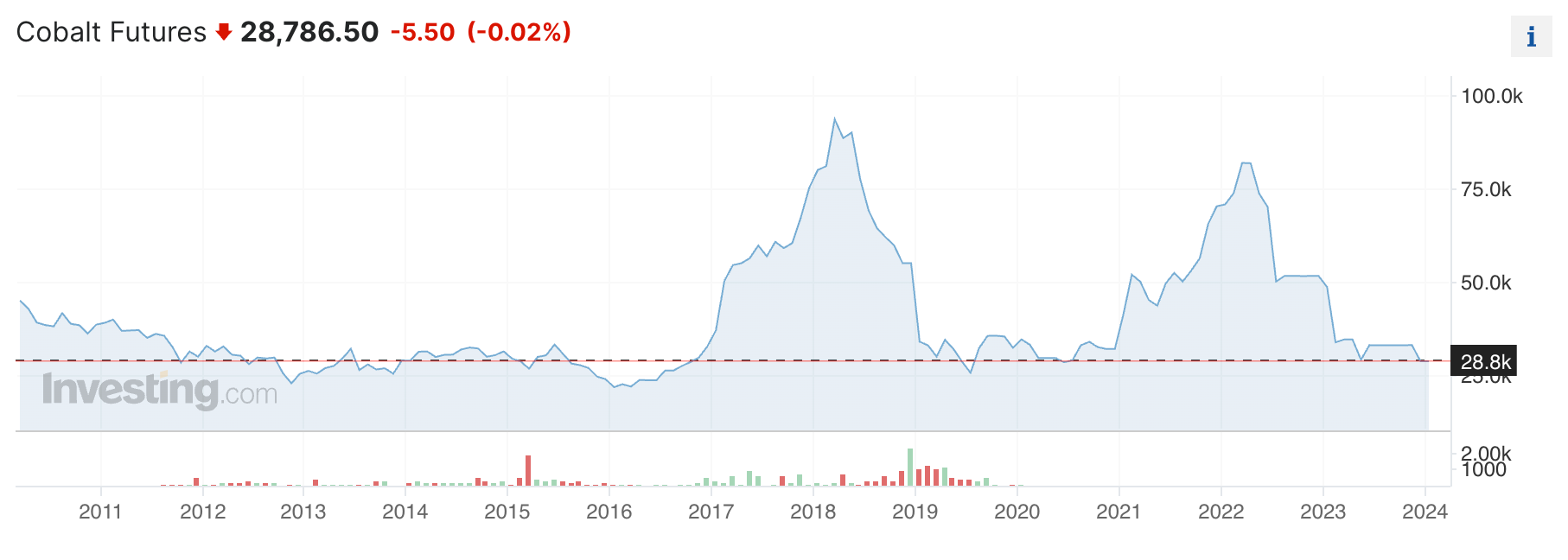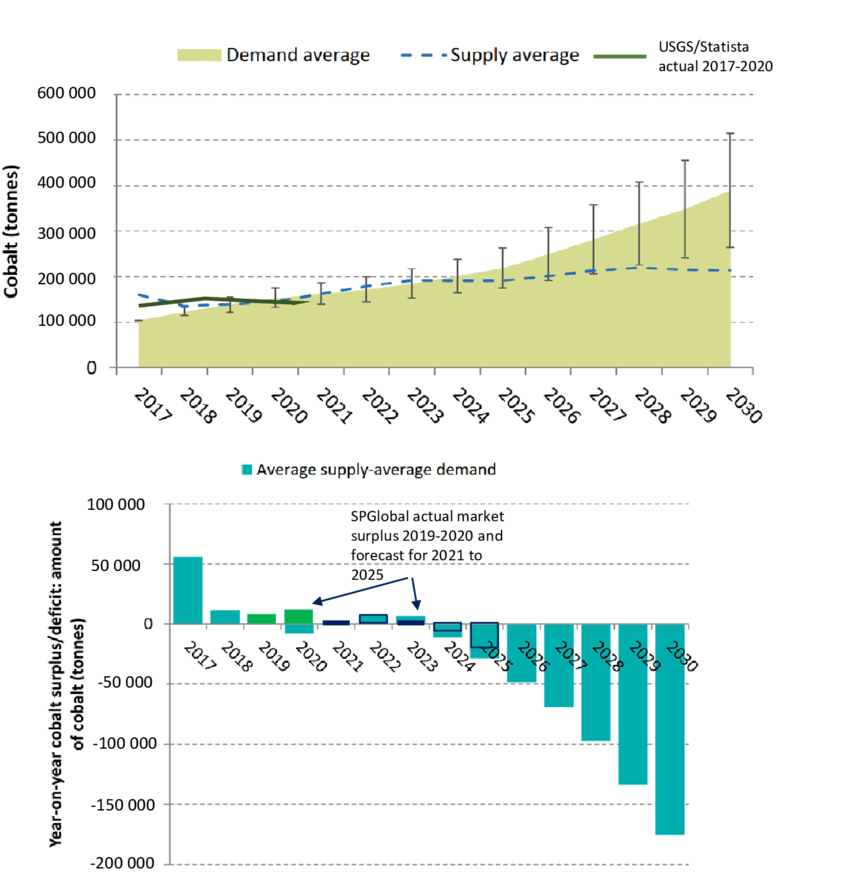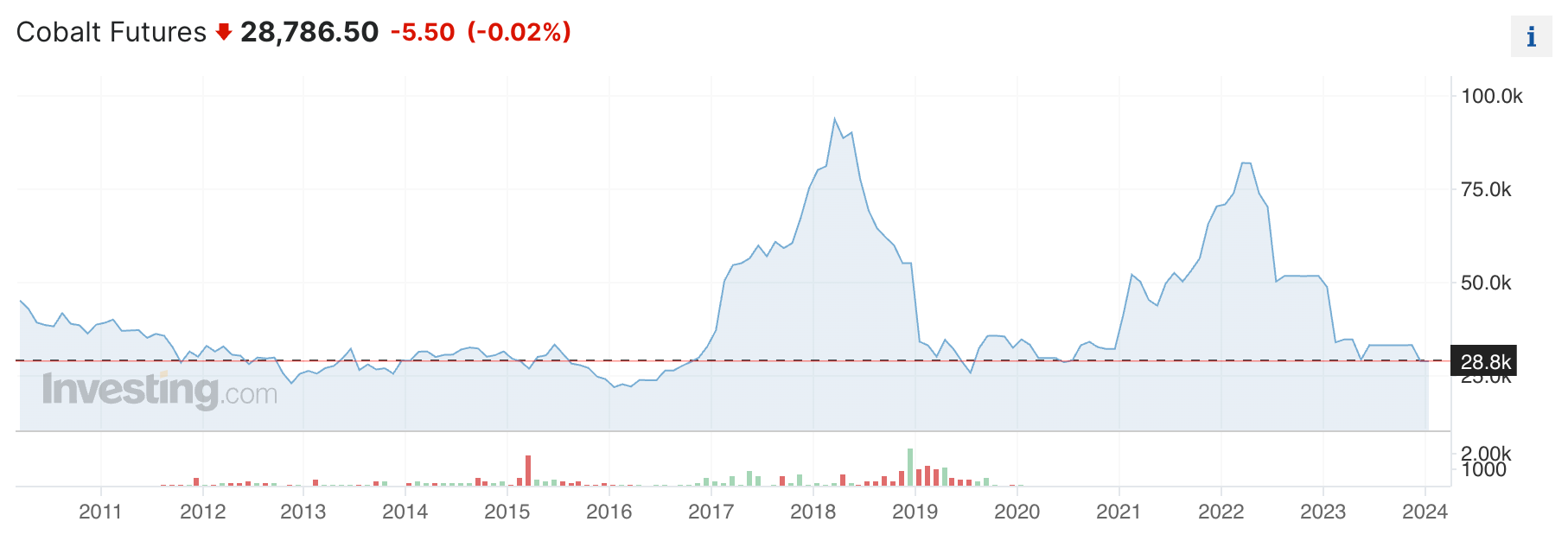Investing in Cobalt: A Quick Analysis

มีคนถามผมเรื่อง Cobalt ว่าน่าจะมีปริมาณการใช้งานเพิ่มขึ้น จากการเพิ่มจำนวนของรถ EV หรือไม่
ผมขอตอบแบบนี้ครับ
1. ปริมาณการใช้งานของ Cobalt เพิ่มขึ้นแน่นอน เพราะ Cobalt เป็นวัตถุดิบสำคัญสำหรับแบตเตอรี่ Lithium ปริมาณความต้องการจะเพิ่มตามความต้องการแบตเตอรี่ และการใช้งานรถ EV
2. แต่ Cobalt ไม่ได้ถูกขุดขึ้นมาจากเหมืองหลัก แต่ตัวมันเองเป็น Byproduct ของแร่อื่นๆ อย่างทองแดงหรือนิกเกิล ดังนั้น แม้การใช้งานเพิ่มขึ้นหรือลดลง พวก Byproduct เหล่านี้ ก็ไม่ได้มีการปรับ supply ตามอย่างมีนัยยะ สิ่งนี้จะมีผลอย่างมากเมื่อ supply shortage คือ ปริมาณการผลิตจะไม่เพิ่มขึ้นตาม demand ทำให้ผลักดันราคา Cobalt ให้พุ่งสูงเมื่อมีความต้องการสูงกว่าปริมาณที่ผลิตได้
3. Cobalt ส่วนใหญ่ของโลกถูกผลิตจากประเทศคองโก ซึ่งมีประเด็นการใช้แรงงานเด็กในเหมือง และกำลังถูกกดดันจากสหประชาชาติให้แก้ไขปัญหานี้แบบยั่งยืน ถ้าสิ่งนี้เกิดขึ้น ต้นทุนการผลิต Cobalt ก็จะสูงขึ้น
4. คองโกมีเสถียรภาพทางการเมืองไม่ดีนัก มีโอกาสทำให้เกิดปัญหาด้าน supply chain หากคองโกมีปัญหาด้านการเมือง
5. แต่ความเสี่ยงก็มีนะครับ ปัจจุบันนักวิทยาศาสตร์พยายามวิจัยเทคโนโลยีที่จะกำจัด Cobalt ออกจากแบตเตอรี่ และตอนนี้มีหลายเทคโนโลยีที่ทำได้แล้ว แม้จะยังไม่ได้คุ้มค่ามากที่สุด แต่ในระยะยาว การใช้งาน Cobalt ในอุตสาหกรรมแบตเตอรี่มีแนวโน้มจะลดลง


ตอนนี้ราคา Cobalt Futures ที่ตลาด LME ตกต่ำมาอยู่แถวๆ 28.8k ต่อสัญญา จากที่เคยไปเกือบถึง 100k ต่อสัญญาในช่วงปี 2018 และขึ้นไปถึง 80k ต่อสัญญาในช่วงโควิดที่เกิด supply shortage เรียกได้ว่าตอนนี้ Cobalt ถือว่าราคาถูกทีเดียว
ใครที่เคยตกรถ Uranium ผมคิดว่า Cobalt ที่ราคาแถวๆ นี้ถือว่าน่าสนใจทีเดียวครับ
People have been asking about Cobalt and whether its usage is likely to increase due to the growing number of electric vehicles (EVs). What's my perspective on this?
Certainly, let me address that. Cobalt usage is poised to increase significantly for several reasons:
- Critical Battery Component: Cobalt is a crucial component in lithium-ion batteries, which are used extensively in electric vehicles (EVs). As the demand for EVs and batteries rises, the demand for cobalt will also grow in tandem.
- By-Product of Other Minerals: It's important to note that cobalt is primarily a by-product of mining other minerals like copper or nickel, rather than being mined directly. Therefore, changes in cobalt demand don't directly impact its supply, as production levels of these other minerals remain relatively constant. This becomes significant when there's a supply shortage, causing cobalt prices to surge due to production limitations.
- Congo's Dominance: The majority of global cobalt production comes from the Democratic Republic of Congo (DRC), where there are concerns about child labor in the mines. International pressure is mounting on the DRC to address these issues sustainably. If such measures are implemented, it could raise the production costs of cobalt.
- Political Uncertainty: The DRC's political instability poses a potential risk to the cobalt supply chain. Any political turmoil in the region could disrupt the supply.
- Alternative Technologies: Researchers are actively working on technologies to reduce or eliminate the need for cobalt in batteries. While these technologies may not be cost-effective at the moment, they could have a long-term impact on cobalt usage in the battery industry.


Currently, Cobalt Futures on the LME are trading at around 28.8k per contract, significantly lower than the peak of nearly 100k per contract in 2018 and the spike to 80k per contract during the COVID-19 supply shortage. Cobalt is considered quite affordable at the moment.
For those who have dabbled in uranium investment, I believe Cobalt at its current price range presents an intriguing opportunity.
Disclaimer: Avareum Research is an independent crypto research firm committed to providing unbiased and informative content. While we strive for complete objectivity, it's important to note that the research industry is inherently complex and may be influenced by various factors. To ensure transparency, we disclose any potential conflicts of interest, such as financial sponsorships or investments in the crypto space. Ultimately, all research and analysis provided by Avareum Research is intended for informational purposes only and should not be considered financial advice. Please consult with a qualified professional before making any investment decisions.
© 2024 Avareum Research. All Rights Reserved. This article is provided for informational purposes only. It is not offered or intended to be used as legal, tax, investment, financial, or other advice.






